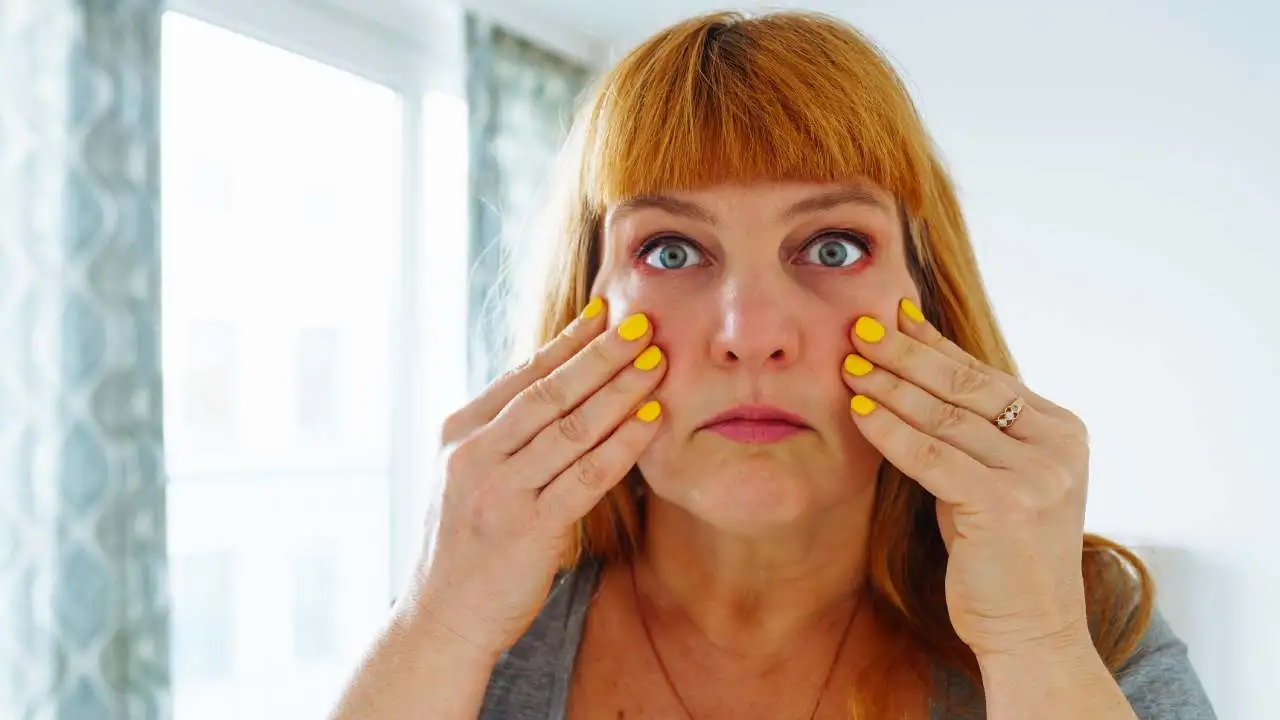You wake up and glance in the mirror, only to notice your face looking unusually puffy. You start wondering, “Why is my face puffy?” Is it something you ate, or could it signal a deeper issue? Facial puffiness can feel alarming, especially if it’s persistent. While it’s easy to brush it off as temporary bloating, understanding the root cause is essential for your health.
At Vein Treatment Clinic, we specialize in diagnosing and treating conditions related to venous health, which can sometimes contribute to facial puffiness. From lifestyle factors to underlying health concerns like chronic venous insufficiency (CVI), several factors could be causing your swollen face. Let’s explore the most common reasons for a puffy face.
1. Dehydration and Fluid Retention
Dehydration is one of the most common causes of puffy faces. When the body doesn’t get enough water, it responds by holding onto as much fluid as possible. This often leads to swelling in areas prone to fluid retention, such as the face. Additionally, a diet high in salt can exacerbate the issue. Sodium causes the body to retain water, which can make the face look swollen, especially in the morning.
How to Prevent Fluid Retention:
- Drink at least 8 glasses of water a day to stay hydrated
- Avoid salty snacks, processed foods, and fast food
- Sleep with your head slightly elevated to allow fluid drainage
2. Allergic Reactions
Facial swelling can also result from allergies, which are your body’s immune response to substances like pollen, pet dander, certain foods, or even skincare products. Allergic reactions often lead to inflammation and fluid accumulation, particularly around the eyes, cheeks, and lips. In more severe cases, an allergic reaction can cause angioedema, which is swelling beneath the skin and may require immediate medical attention.
Signs Your Puffy Face May Be Allergy-Related:
- Swelling around the eyes or lips
- Redness or hives on the skin
- Itchy or watery eyes
- Difficulty breathing or swallowing (seek emergency care)
3. Infections or Sinus Issues
Sinus infections, colds, or other localized infections in the face can cause puffiness due to inflammation and fluid buildup. When your sinuses are blocked or inflamed, the surrounding tissues may swell, resulting in noticeable puffiness in your cheeks or under your eyes. Other types of infections, like dental abscesses or skin infections, can also lead to localized facial swelling. These usually come with pain, tenderness, or redness in the affected area.
Symptoms of Infection-Related Facial Swelling:
- Pain or pressure in the cheeks, forehead, or around the eyes
- Nasal congestion or a runny nose
- Fever, chills, or fatigue
- Tender or swollen lymph nodes
4. Poor Sleep or Stress
Not getting enough rest or experiencing chronic stress can lead to noticeable facial puffiness. When you sleep poorly, your body produces more cortisol (the stress hormone), which can cause inflammation and fluid retention. Additionally, lying flat while sleeping can cause fluid to accumulate in your face overnight. Chronic stress also disrupts the hormonal balance that regulates your body’s water and salt levels, further contributing to swelling. This type of puffiness often appears as bags under the eyes or a swollen, tired-looking face.
Tips for Managing Sleep and Stress-Related Puffiness:
- Establish a consistent bedtime routine to improve sleep quality
- Elevate your head with extra pillows while sleeping
- Incorporate relaxation techniques like deep breathing, yoga, or meditation
- Use a cold compress or cooling eye mask to reduce puffiness in the morning
5. Hormonal Changes
Hormonal fluctuations, such as those associated with menstruation, pregnancy, menopause, or certain medical conditions like hypothyroidism, can lead to a swollen face. These changes often cause your body to retain water, resulting in puffiness in the face and other areas like the hands, feet, and abdomen. For example, hypothyroidism (an underactive thyroid) can slow your metabolism and cause fluid retention. Similarly, hormonal shifts during pregnancy increase blood volume and fluid retention, possibly contributing to facial swelling.
Other Signs of Hormonal-Related Puffiness:
- Swollen hands or feet
- Weight gain or difficulty losing weight
- Fatigue, mood swings, or irregular periods
- Dry skin or hair thinning (associated with hypothyroidism)
6. Chronic Venous Insufficiency (CVI)
Chronic Venous Insufficiency (CVI) is a long-term medical condition in which the veins in your body fail to transport blood effectively back to the heart. This happens because the vein valves, which are responsible for preventing the backflow of blood, become weak. Normally, these valves act like gates, ensuring blood flows upward toward the heart, even against gravity. When they malfunction, blood can pool in the veins, causing pressure to build up and leading to swelling, inflammation, and other complications.
CVI is most commonly associated with the lower extremities, where gravity makes it more challenging for blood to flow upward. Symptoms in the legs can include swelling (edema), a feeling of heaviness, pain, skin discoloration, and the formation of varicose or spider veins. However, the effects of CVI can extend beyond the legs in severe cases. Poor circulation caused by CVI may lead to systemic fluid retention, which can occasionally manifest as puffiness in areas like the face, especially in the mornings.
Signs and Symptoms of CVI:
- Persistent facial puffiness, especially in the mornings
- Facial swelling coupled with leg swelling
- Heaviness or aching in the legs
- Skin changes in the lower legs, such as discoloration or dryness
- Development of varicose veins or spider veins
The good news is that CVI is treatable, especially when caught early. Modern vein treatments, such as endovenous laser ablation, radiofrequency ablation, and VenaSeal, can effectively address the root cause by closing or sealing the damaged veins. By improving blood flow and reducing pressure in the veins, these vein treatments help alleviate swelling. If you suspect CVI could be contributing to your facial or leg swelling, seek professional evaluation. Contact our board-certified vein doctors to explore your minimally invasive vein treatment options.
Do You Have a Puff Face? Contact Us Today
Facial puffiness can have many causes, from mild lifestyle factors to more serious conditions like chronic venous insufficiency. Understanding the underlying cause is the first step toward effective treatment. If you’re experiencing persistent facial swelling or other symptoms, visit your nearest Vein Treatment Clinic for a comprehensive evaluation. Learn about our vein treatments and take the next step toward better health today.










